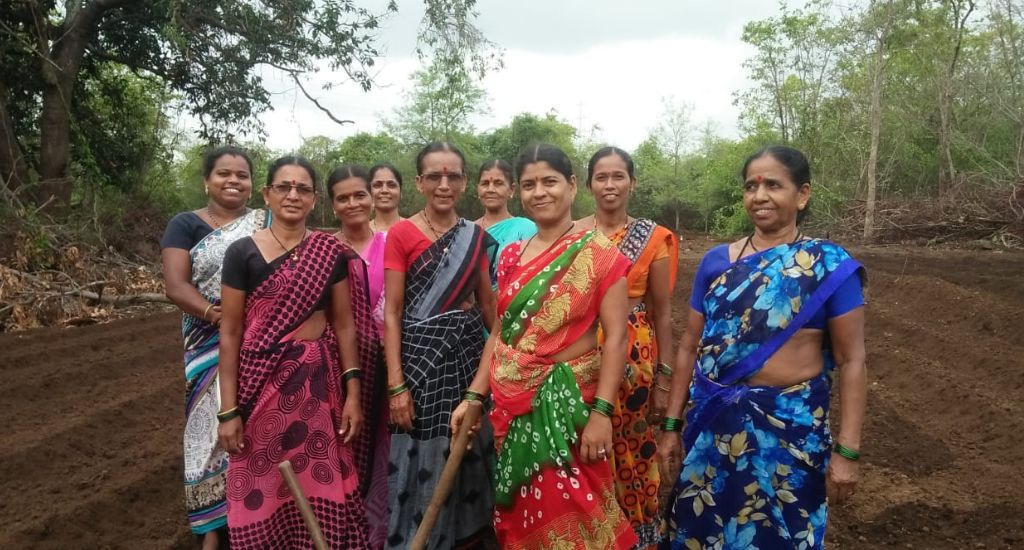
Papads and pickles empower women in Maharashtra
A women's self-help group in the quaint village of Peth in Palghar district of Maharashtra has transformed traditional culinary skills into entrepreneurial success.

A women's self-help group in the quaint village of Peth in Palghar district of Maharashtra has transformed traditional culinary skills into entrepreneurial success.
A Hindi proverb talks about “papad belna” or to roll the thin circular crisps made from a mixture of flour and water, and served roasted or fried. It means to go through great difficulty and a complicated procedure to complete a task or achieve something. In English, the equivalent phrase would be to jump through hoops.
But a dozen women from the quaint village of Peth in Palghar district of Maharashtra are rolling papads without going through hoops. They have discovered the power of economic freedom and self-worth by producing a variety of mouth-watering papads and pickles.
The Nari Shakti Utpadak Gat, meaning women’s empowerment producers group, began in December 2022 with a meagre initial investment of Rs 200 a woman. Today, they have accumulated a profit of Rs 31,000 in their bank account and their products have found favour in cities like Mumbai, Delhi, and Pune.
Guided by Prateeksha, a 41-year-old community resource person for the Umeed project of the Maharashtra State Rural Livelihoods Mission and an active member of the group, the self-help group (SHG) has achieved remarkable success.
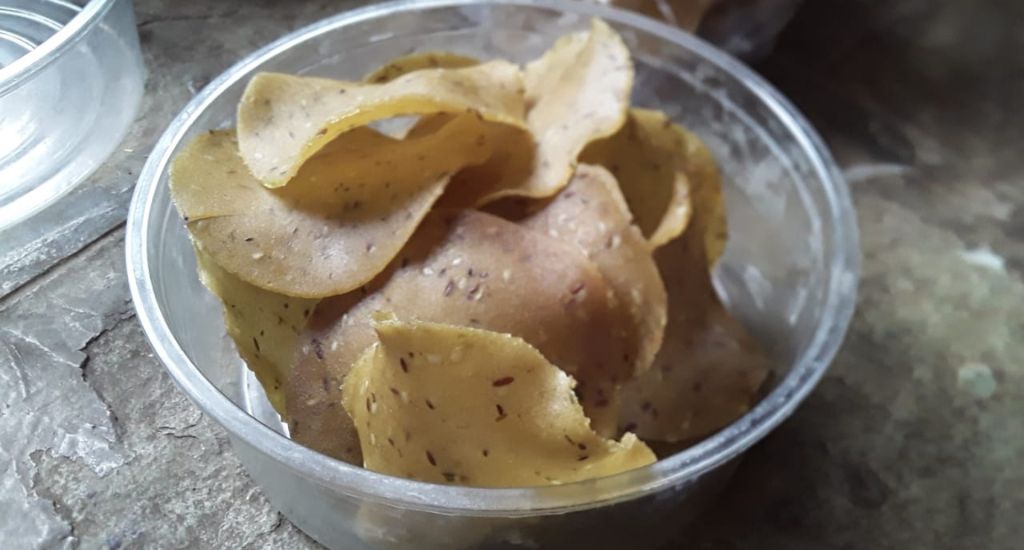
“In just a couple of months, we have sold products worth Rs 1 lakh, and our list of clients is growing,” Prateeksha said.
While their papads and pickles are traditional and homemade, the women have utilised digital technology like WhatsApp and postal services to package and deliver their products to clients at a modest cost.
To overcome the expense of courier services, the papads are wrapped in plastic packets and sturdy cardboard boxes with labels and sent through the local post office. Papads are their best-selling products and cost between Rs 350 and Rs 450 a kg, including postal charges.
Also Read | Enterprising women: Stories of inspiring micro-entrepreneurs in Maharashtra
Venkat Iyer, an organic farmer living in Peth since 2004 and the author of the book, Moong over Microchips, played a significant role in motivating the women to form the SHG and become producers and entrepreneurs.
“People prefer homemade products over those produced in factories, even if it means paying a little more,” he said.
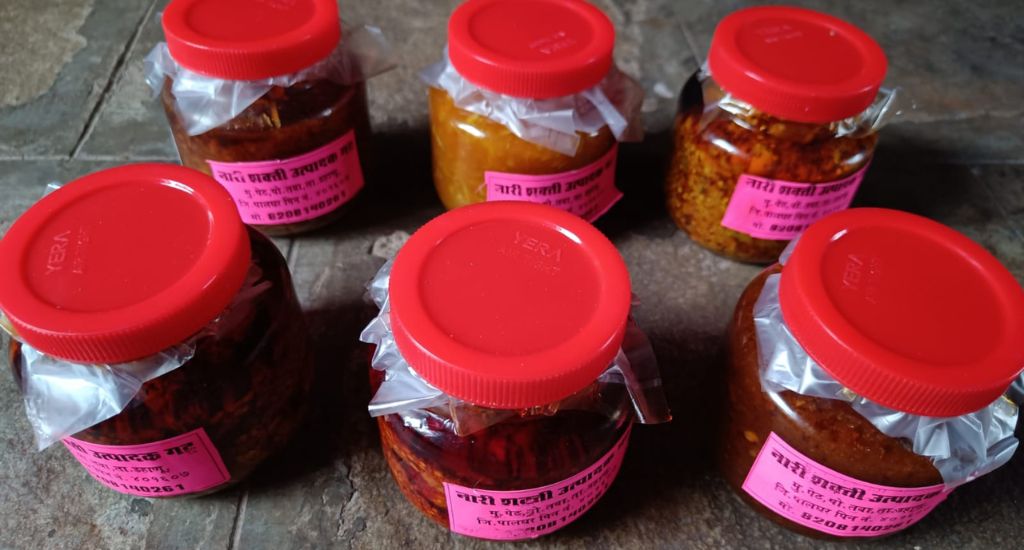
Iyer encouraged the women to use their culinary skills after completing their household and farming duties. Initially, their clients were friends of Iyer and his wife Meena on WhatsApp, but now sales are growing through word-of-mouth recommendations from regular clients.
The women, all with an 8th-grade education, have proven their capabilities in handling bank work, stocks and cash management, and packaging. They were open to learning and required only guidance.
“They had never made rice khichiya or Gujarati papads, but after receiving training from a chef friend, they have mastered the art,” said Iyer.
Having tasted success, they are now eager to learn more and aspire to achieve greater heights.
With the support of the village panchayat, an unused school building in Peth has been transformed into the group’s workplace. The women maintain discipline by arriving at around 11am to plan and roll out papads, make pickles, and prepare snacks until 4pm. Babita, 50, renowned in the village for her cooking skills, describes the experience as both fun and educational.
Also Read | Youngsters ditch restaurants, boost roadside stalls in Matheran
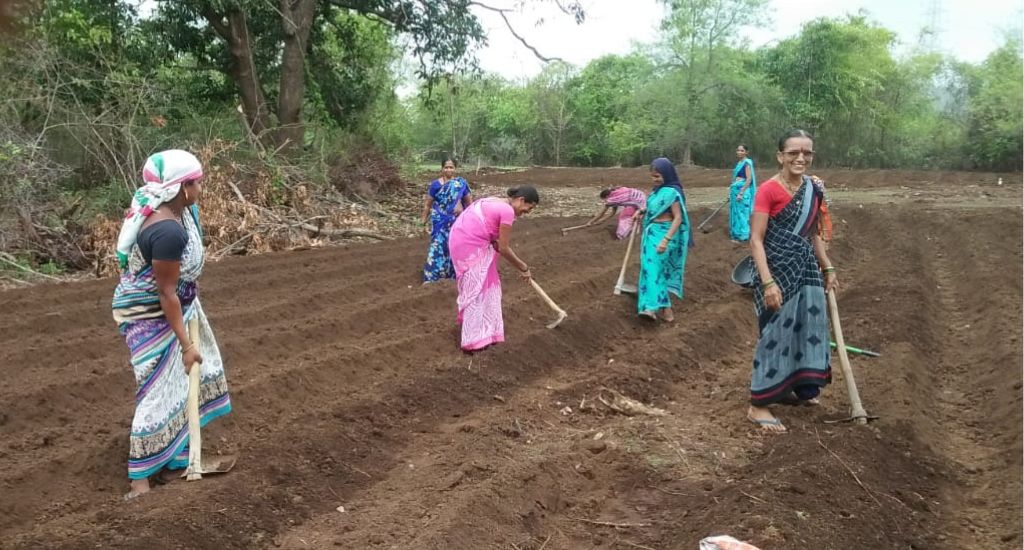
The SHG produces four varieties of papads made from split black gram, rice, and jowar and ragi millets. These papads are sun-dried by May before the strong winds and monsoons arrive in Palghar. A group of 10-12 women working together can roll out 5kg of wafer-thin papads in a day, with each kilogram containing approximately 200 of them. The process requires skill. The split black gram is soaked overnight, ground to a fine consistency and kneaded until it forms a long, thick elastic rope. It is then sliced into small rounds using a thread and rolled out before drying.
The SHG also specialises in making mango pickles with fruits sourced directly from farms, using traditional recipes passed down by grandmothers. Their range comprises five varieties, including the spicy avakkai pickle from southern India made in sesame oil, the classic north Indian mango pickle in mustard oil, and the tangy-sweet varieties. The popular choonda pickle from Gujarat is made with molasses or sugar, based on customer preferences, while the lasude or gonda pickle is made from green berries. All the pickles contain rock salt.
Besides papads and pickles, the women also make other delicacies such as sesame-jaggery laddoos.
Confidence and financial freedom are the greatest takeaways for these women. They collectively decide on a daily wage of Rs 100 for each member. They no longer have to rely on their husbands for financial support.
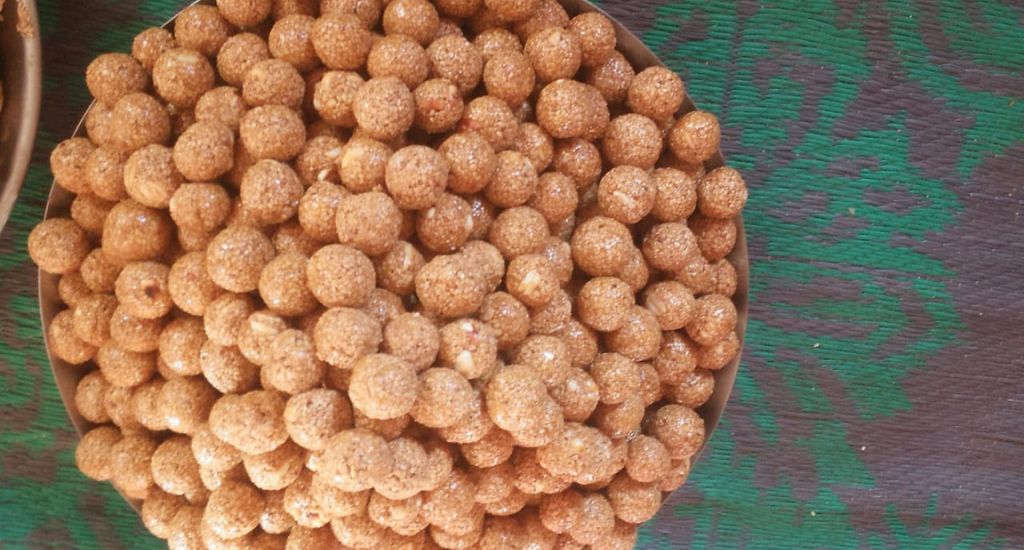
Prateeksha’s sons are in college. Babita, responsible for a family of nine, including her in-laws, can provide for them all. Rhea, one of the youngest members, handles the stocks at the work centre and aspires to provide the best education to her children.
All the 12 members of the SHG are proficient in accounting, sales and banking work. They respond to queries on WhatsApp using their smartphones and share responsibilities within the group. Besides the business skills they have acquired, the camaraderie and constant learning among the women have become sources of joy and fulfilment. In April this year, the Nari Shakti SHG also ventured into turmeric farming on Babita’s two-acre plot.
Also Read | This Maharashtra village is home to 10 aromatic rice varieties
The lead image at the top shows the women members of the self-help group at Peth village in Palghar district of Maharashtra. (Photo by Venkat Iyer)
Usha Rai is a veteran journalist who has worked for the Times of India, Indian Express and Hindustan Times and mainstreamed development issues into news. She is recipient of the Chameli Devi award for outstanding women journalists.